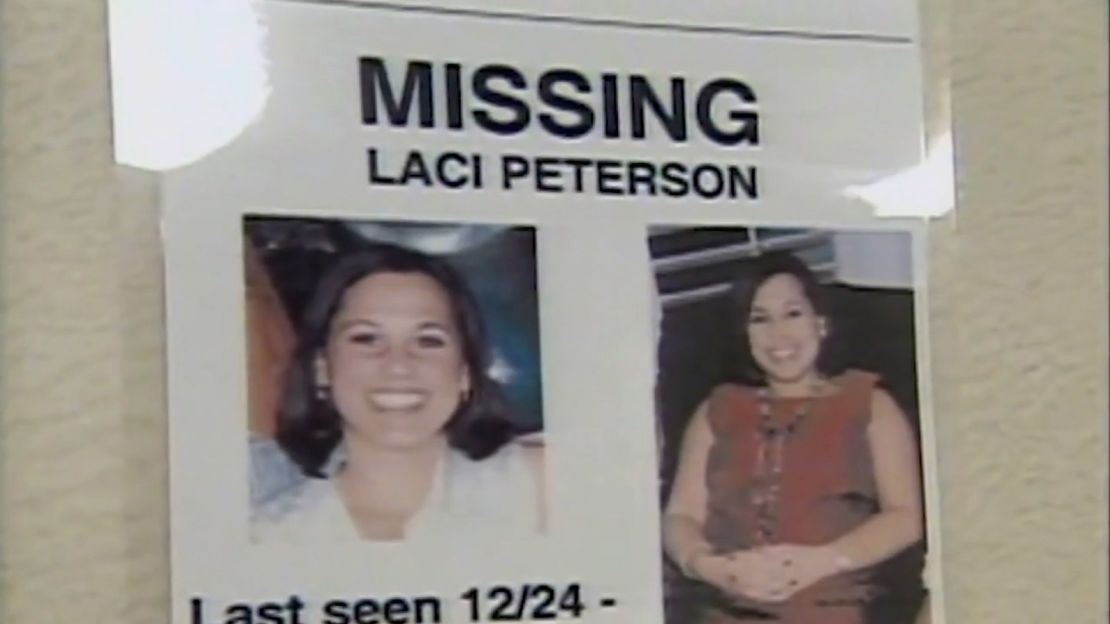After lawyers argued for new DNA testing in the murder case against Scott Peterson, a California judge ruled Wednesday that only retesting of DNA on duct tape that adhered to his wife Laci Peterson’s pants will be permitted, while testing of other new and prior evidence in the decades-old case will not be allowed.
Scott Peterson’s latest bid for a new murder trial comes about 20 years after his conviction. Peterson was convicted of murder in 2004 in the deaths of his wife, Laci, and their unborn son, Conner. He was sentenced to death but that was later overturned and he was resentenced to life without parole.
San Mateo County Superior Court Judge Elizabeth Hill said she was only making a determination about evidence, not if Peterson can have a new trial.
The duct tape, approximately 15 inches long, “was found adhering to Laci’s pants on her right thigh.” According to the motion, “a section of the duct tape that was folded over onto itself underwent DNA testing and the presence of human DNA was found, but no DNA profile could be obtained.”
On Wednesday, during the post-conviction DNA testing hearing, lawyers for the Los Angeles Innocence Project who had taken up Peterson’s case in January presented evidence they argued was either never looked at or simply omitted from the trial.
Of the 14 items requested for retesting, Judge Hill only granted one item - the duct tape found on Laci Peterson.

Peterson’s defense team requested DNA testing on stains found on a mattress discovered in the back of a burned-out van. The charred vehicle was found one day after Laci disappeared – roughly one mile from where the Petersons lived in Modesto.
The lawyers also wanted to examine evidence from a burglary that happened across the street from the Peterson home. They claim Laci may have run into the burglars while they were committing a crime – a theory that suggests she was murdered because she witnessed the burglary. The judge denied requests for those items.
The prosecution argued Scott Peterson is guilty and revisited evidence that led to his double murder conviction.
“We were right then and we are right now, and … [it] is inappropriate for the defense to continue to try and find the things to drag this case out,” said Dave Harris with the Stanislaus County District Attorney’s office.
“The state of California has a powerful interest in the finality of its judgements,” Harris said.
Peterson reported his pregnant wife missing from the couple’s Modesto, California, home in December 2002. Less than four months later, the bodies of Laci and Conner were found washed up in the San Francisco Bay.
In November 2004, after a nearly six-month trial, Peterson was found guilty of first-degree murder for Laci’s death and second-degree murder for Conner’s death. Prosecutors alleged that Peterson’s motive for the murders was to escape married life and upcoming fatherhood. The jury recommended the death penalty, which Judge Alfred Delucchi followed.
Following Governor Newsom’s moratorium on executions in 2019, Peterson’s death sentence was overturned by the California Supreme Court in 2020. A few months later, the California Supreme Court ordered the San Mateo County Superior Court to reexamine Peterson’s murder convictions because a juror did not disclose involvement in other legal proceedings, including but not limited to “being the victim of a crime.” He was resentenced to life without parole in 2021.
In 2023, Peterson’s attorneys filed a petition for a writ of habeas corpus in which they alleged “violations of state and federal constitutional rights and state statutory rights, including … a claim of actual innocence that is supported by newly discovered evidence.” The Los Angeles Innocence Project, a nonprofit that works to exonerate people who are wrongly convicted, later announced it was investigating Peterson’s “claim of actual innocence.”




